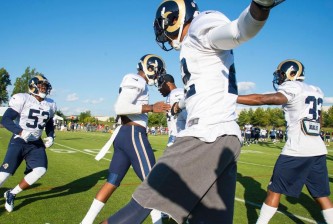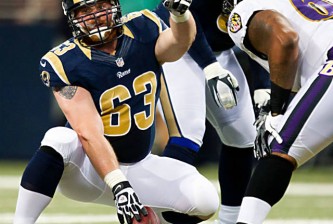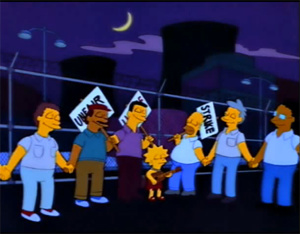Ownership is lined up on one side. Contract labor is lined up on the other. And like many labor disputes in the past, the company employees caught in the middle are expected to shut up and stay out of the way. For the most part, that’s what the GMs and coaches of the NFL have done during the NFL lockout.
Until now.
The coaches of the NFL have collectively crossed the picket lines and are now figuratively standing outside the fences with the players, even as they play the part of the “good employee.” While the players organize their own OTAs only minutes away, the coaches park in the employees parking lot and shuffle in and out of their team’s facilities to walk the empty halls and wear out the video machines.
As Doug Farrar details in his article for the Shutdown Corner, the NFL’s coaches and assistant coaches collectively — but anonymously — filed an amicus brief to the 8th Circuit Court in St Louis to plead for a lifting of the lockout. In doing so, they make obvious how their collective fears of “irreparable harm” play out:
“The hours and effort demanded of assistant coaches are justified only by the prospect of lucrative and stable employment that follows proven success. Failure at an early stage of one’s career, however, can falter career aspirations for many subsequent years.”
In terms of legal specifics, they are only asking for protection against any potential fallout from antitrust proceedings against the owners’ cartel. But the underlying message couldn’t be clearer: “Please, let us do our jobs. Please let us play.”
The frustrating thing about the lockout is that it could be lifted at any time, even without a collective bargaining agreement. The Rams could be back at work instead of playing spy games to get Josh McDaniels’ offense in the hands of his players.
Ironically, even Jerry Richardson can’t figure out why no progress is being made.
“I think there’s been a sense of urgency on our part, starting two years ago,” Richardson said. “There’s always been a sense of urgency. It makes no sense what we’re doing now. We aren’t even negotiating.”
Of course, it was two years ago when the league begain inserting lockout clauses into their TV broadcast contracts, laying the groundwork for the impasse, the legal morass, that we find ourselves in now.
An obvious question hangs in the air: What game does Richardson want to be playing? While coaches, players and fans are frustrated that the game of football has been put on hold, Richardson and his fellow owners bemoan that their own game of union-busting is stuck in neutral.
Meanwhile, the longer this thing stays in the courts, says former NFL agent Jack Bechta in the National Football Post, the more likely something disastrous happens to change the very fabric of the game itself.
“The NFL draft, salary caps, wage scales, and the current free agency system are all illegal outside of a the CBA. If left in the courts too long it can potentially all be unraveled.”
As much as the NFL’s purse-holders despised the legal judgements of Judge David Doty that paved the way for modern free agency, there was no question that he was a fan of the game itself. While his rulings might have swayed the balance of power from owners to players — or somewhere in the middle — the purpose of his rulings was to keep football going on the field.
The two-person majority of judgeship in St Louis doesn’t appear to share the same sentiment. To them, this is strictly a business deal, a ruling of bosses against labor. The posturing of DeMaurice Smith for the players, David Boies and Bob Batterman for the owners, and the other parties involved in “courtroom football” have shown little inclination to the contrary.
And that’s the scariest part of where we stand today: the fate of the greatest game in the world lies in the hands of people who care nothing about preserving it.























